Finding other ways to say “Welcome Back” can make your greeting feel warmer, more personal, and full of genuine care. The phrase “Welcome Back” is already friendly, but using different words can make your message stand out and sound more heartfelt and thoughtful. Whether you’re greeting a friend, coworker, student, or family member, these alternatives help you express true appreciation and happiness for their return in a natural and meaningful way.
What Does “Welcome Back” Mean?
The phrase “Welcome Back” is used to greet someone returning after being away, whether for days, weeks, or even months. It expresses warmth, happiness, and appreciation, making the person feel valued and missed. Saying “Welcome Back” helps people know that their presence matters and their return is something to be celebrated, no matter the setting.
Is It Professional/Polite to Say “Welcome Back”?
Yes, “Welcome Back” is both professional and polite, making it perfect for almost any situation. In offices, it’s a great way to show inclusion and appreciation when someone returns from leave or travel. In personal life, it’s a heartfelt phrase that shows affection and care, making people feel genuinely valued. Choosing creative or kind alternatives can make your message feel even more thoughtful and emotionally meaningful.
Synonyms for “Welcome Back”
- It’s so good to see you again!
- We’ve missed you around here!
- Great to have you with us again!
- Glad you’re back!
- Welcome home!
- Happy to see you return!
- It hasn’t been the same without you!
- So nice to have you back!
- Delighted to see you again!
- You were truly missed!
- The team wasn’t the same without you!
- It’s wonderful to see your face again!
- We’re so happy you’re back with us!
- Feels great to have you back!
- You’ve been gone too long!
- It’s a pleasure to see you again!
- Thrilled to have you back in action!
- We couldn’t wait for your return!
- Everything feels right now that you’re here!
- Welcome back — it’s like you never left!
1. Great to Have You Back
Meaning: This phrase expresses genuine happiness and appreciation when someone returns after being away. It shows you truly noticed their absence and are delighted by their presence again.
Scenario: Perfect for workplaces, schools, or friendly settings when someone comes back after a break, trip, or absence.
Examples:
- It’s great to have you back; the office feels complete again.
- It’s great to have you back home; everyone missed your laughter.
- It’s great to have you back, your positive spirit really makes a difference.
- It’s great to have you back with us after your travels abroad.
- It’s great to have you back, the team wasn’t the same without you.
Tone: Warm, friendly, and slightly professional.
Explanation: This phrase creates an instant sense of appreciation and is great for showing respect and connection. It works beautifully in both formal and personal contexts because it feels genuine and kind.
2. So Good to See You Again
Meaning: A heartfelt expression showing joy and affection upon seeing someone who has been away.
Scenario: Best for greeting friends, family members, or close coworkers when they return after a long time.
Examples:
- It’s so good to see you again, it feels like ages since we last met.
- It’s so good to see you again, your presence always brings warmth.
- It’s so good to see you again, I missed our daily talks.
- It’s so good to see you again, the office is brighter with you here.
- It’s so good to see you again, welcome back to your happy place.
Tone: Emotional, affectionate, and friendly.
Explanation: This phrase helps convey genuine connection and happiness, making it ideal for close relationships or friendly reunions.
3. Nice to See You Again
Meaning: A polite and simple way to express pleasure at someone’s return without being too emotional.
Scenario: Useful in professional, educational, or social settings where warmth is appreciated but formality is needed.
Examples:
- Nice to see you again, I hope your vacation was refreshing.
- Nice to see you again, meetings feel better with you here.
- Nice to see you again, we’ve missed your thoughtful insights.
- Nice to see you again, it’s been a while since our last chat.
- Nice to see you again, I’m glad you’re back safely.
Tone: Professional, polite, and respectful.
Explanation: This phrase is great for maintaining professionalism while still expressing friendliness, making it suitable for formal greetings or workplace interactions.
4. Glad You’re Back
Meaning: A short, friendly way to show you’re happy that someone has returned.
Scenario: Common in both work and personal life when you want to keep things casual yet warm.
Examples:
- I’m glad you’re back, things were quiet without you.
- So glad you’re back, we really missed your humor.
- Glad you’re back, now the team feels whole again.
- Really glad you’re back, I’ve been waiting to share some good news.
- Glad you’re back, the place just wasn’t the same.
Tone: Casual, friendly, and sincere.
Explanation: This phrase works well when you want to express warm emotion in fewer words, perfect for informal conversations.
5. Welcome Home
Meaning: A heartfelt phrase that conveys warmth, comfort, and belonging when someone returns to a familiar place.
Scenario: Used for family members, close friends, or partners returning home from travel or time away.
Examples:
- Welcome home, it feels complete now that you’re here.
- Welcome home, we missed you so much.
- Welcome home, the house feels alive again.
- Welcome home, dinner’s ready and we’ve been waiting.
- Welcome home, your presence brings joy to everyone here.
Tone: Deeply affectionate and personal.
Explanation: This phrase radiates love and comfort, making people feel safe, loved, and truly appreciated.
6. We Missed You
Meaning: An honest and warm way to express that someone’s absence was truly felt.
Scenario: Perfect for showing genuine affection to family, friends, or coworkers after time apart.
Examples:
- We missed you, it’s not the same without you around.
- We missed you, your energy always brightens the room.
- We missed you, everyone was asking when you’d return.
- We missed you, and we’re so happy you’re finally here.
- We missed you, life’s better when you’re part of it.
Tone: Heartfelt, sincere, and emotional.
Explanation: This phrase adds a personal touch, showing that the person’s return truly means something to you.
7. Good to Have You Back
Meaning: A classic phrase that balances friendliness and professionalism when welcoming someone back.
Scenario: Ideal for colleagues, classmates, or acquaintances in neutral yet friendly contexts.
Examples:
- Good to have you back, the team’s been waiting for your input.
- Good to have you back, things run smoother with you around.
- Good to have you back, hope your trip went well.
- Good to have you back, we’ve all been missing your ideas.
- Good to have you back, everyone’s excited to see you again.
Tone: Professional but approachable.
Explanation: This phrase is perfect for showing respect and positive acknowledgment, fitting nicely in work or team settings.
8. Delighted to See You Again
Meaning: A formal yet warm way to show true pleasure at someone’s return or reappearance.
Scenario: Best for polite, formal greetings, such as in business meetings, events, or polite social circles.
Examples:
- Delighted to see you again, it’s been far too long.
- Delighted to see you again, your presence always adds value.
- Delighted to see you again, I hope you’ve been doing well.
- Delighted to see you again, your return brings positive energy.
- Delighted to see you again, it’s a pleasure to reconnect.
Tone: Polite, formal, and warm.
Explanation: This phrase sounds graceful and professional, ideal for formal greetings and polite reunions.
9. Happy to See You Again
Meaning: This phrase shows genuine joy and friendliness, letting someone know you’re truly glad about their return.
Scenario: Use this when greeting a friend, classmate, or colleague after a trip, leave, or short break.
Examples:
- Happy to see you again, things just feel brighter when you’re around.
- Happy to see you again, I’ve been waiting to catch up with you.
- Happy to see you again, it’s always wonderful having you here.
- Happy to see you again, your energy makes everyone feel better.
- Happy to see you again, it feels good to have the team complete.
Tone: Cheerful, kind, and sincere.
Explanation: This phrase radiates positivity and appreciation, showing that someone’s return has truly improved the atmosphere or moment.
10. Long Time No See
Meaning: A playful and casual way to greet someone you haven’t seen in quite a while.
Scenario: Perfect for friends, classmates, or friendly coworkers after a long period apart.
Examples:
- Long time no see, it’s great to finally catch up again.
- Long time no see, I missed our fun conversations.
- Long time no see, how have you been holding up?
- Long time no see, we definitely have a lot to talk about.
- Long time no see, I’m really happy to reconnect today.
Tone: Casual, friendly, and light-hearted.
Explanation: This phrase feels relaxed and conversational, making it perfect for informal greetings that still express genuine happiness.
11. Great Seeing You Again
Meaning: A slightly formal but warm phrase that expresses pleasure and friendliness in seeing someone return.
Scenario: Useful in both professional and social situations, such as after meetings or reunions.
Examples:
- Great seeing you again, it’s been too long since we last met.
- Great seeing you again, your insight is always appreciated.
- Great seeing you again, we’ve all been looking forward to this.
- Great seeing you again, I hope you’ve been doing well.
- Great seeing you again, let’s catch up properly soon.
Tone: Warm, polite, and professional.
Explanation: This phrase works wonderfully for polite greetings or casual professional interactions, maintaining both respect and friendliness.
12. Glad to See You Back
Meaning: A kind and caring phrase that shows relief and happiness when someone returns after being away.
Scenario: Perfect for offices, classrooms, or friendly environments when someone rejoins a group.
Examples:
- Glad to see you back, it hasn’t been the same without you.
- Glad to see you back, everyone was asking about you.
- Glad to see you back, we really missed your spirit.
- Glad to see you back, the place feels whole again.
- Glad to see you back, welcome to where you belong.
Tone: Warm, appreciative, and friendly.
Explanation: This phrase communicates both warmth and belonging, showing that the person is valued and truly welcomed.
13. Wonderful to Have You Back
Meaning: A beautiful and heartfelt phrase that expresses genuine joy at someone’s return.
Scenario: Perfect for heartfelt greetings, such as welcoming family members, colleagues, or close friends.
Examples:
- Wonderful to have you back, things feel right again now.
- Wonderful to have you back, we’ve all been eagerly waiting for you.
- Wonderful to have you back, your presence always makes a difference.
- Wonderful to have you back, it feels great to have the team together again.
- Wonderful to have you back, you bring such positive energy to everyone.
Tone: Heartfelt, kind, and genuine.
Explanation: This phrase conveys a deep emotional connection, ideal when you truly want to show affection and appreciation.
14. It’s Been Too Long
Meaning: A warm expression that acknowledges time apart while showing excitement about seeing someone again.
Scenario: Used in personal or friendly settings when reconnecting after a significant period.
Examples:
- It’s been too long, I’m so glad we’re meeting again.
- It’s been too long, I really missed spending time with you.
- It’s been too long, we have so much to catch up on.
- It’s been too long, your smile always makes me feel at home.
- It’s been too long, let’s not wait this long again.
Tone: Warm, nostalgic, and friendly.
Explanation: This phrase is filled with emotion and sincerity, making people feel that their absence truly mattered.
15. Good to Have You Around Again
Meaning: A casual but heartfelt phrase showing appreciation for someone’s presence after a period away.
Scenario: Perfect for colleagues, classmates, or community members returning to a familiar group or team.
Examples:
- Good to have you around again, the team really missed your laughter.
- Good to have you around again, things are lively once more.
- Good to have you around again, your return brings a great energy.
- Good to have you around again, we’re all happier now that you’re back.
- Good to have you around again, the atmosphere feels brighter with you here.
Tone: Friendly, relaxed, and genuine.
Explanation: This phrase helps convey belonging and appreciation, making the person feel valued within a group.
16. Great to See You Back
Meaning: A balanced phrase that expresses both warmth and professionalism, suitable for any setting.
Scenario: Use in workplaces, classrooms, or general friendly greetings after someone’s absence.
Examples:
- Great to see you back, hope everything went well while you were away.
- Great to see you back, your ideas always inspire us.
- Great to see you back, the team feels complete again.
- Great to see you back, it’s been quiet without you.
- Great to see you back, I’ve missed working with you.
Tone: Professional and warm.
Explanation: This phrase perfectly balances respect and care, ideal for work-related or neutral conversations.
17. Delighted You’re Here Again
Meaning: A slightly formal phrase expressing true pleasure and joy at someone’s return.
Scenario: Great for business, events, or polite social interactions.
Examples:
- Delighted you’re here again, it’s always wonderful having you with us.
- Delighted you’re here again, your presence adds so much value.
- Delighted you’re here again, I’ve missed our discussions.
- Delighted you’re here again, thank you for coming back.
- Delighted you’re here again, the event feels complete now.
Tone: Formal, kind, and respectful.
Explanation: This phrase adds a touch of elegance and politeness, ideal for professional and formal environments.
18. Feels Great to Have You Here Again
Meaning: A natural and friendly way to express comfort and joy in someone’s return.
Scenario: Perfect for gatherings, classrooms, or workplaces where you want to sound genuine and relaxed.
Examples:
- Feels great to have you here again, things just seem better with you.
- Feels great to have you here again, everyone’s been waiting for this.
- Feels great to have you here again, your presence really changes the mood.
- Feels great to have you here again, welcome to where you belong.
- Feels great to have you here again, you’ve truly been missed.
Tone: Friendly and positive.
Explanation: This phrase highlights appreciation and emotional comfort, perfect for showing genuine welcome and connection.
19. It’s Wonderful Seeing You Again
Meaning: A warm, expressive phrase that conveys genuine happiness upon seeing someone once more.
Scenario: Best for friendly reunions or social gatherings after long separations.
Examples:
- It’s wonderful seeing you again, it’s been far too long.
- It’s wonderful seeing you again, I missed your bright personality.
- It’s wonderful seeing you again, it feels like old times.
- It’s wonderful seeing you again, let’s not wait so long next time.
- It’s wonderful seeing you again, you’ve been greatly missed.
Tone: Emotional, warm, and friendly.
Explanation: This phrase makes the greeting feel personal and sincere, emphasizing warmth and emotional connection.
20. You’ve Been Missed
Meaning: A deeply caring phrase that acknowledges someone’s importance and how their absence affected others.
Scenario: Perfect for close relationships or team settings where emotions and appreciation matter.
Examples:
- You’ve been missed, everyone was talking about you while you were away.
- You’ve been missed, the office didn’t feel the same.
- You’ve been missed, I’m so glad you’re finally here.
- You’ve been missed, we all felt your absence deeply.
- You’ve been missed, it’s great having you with us again.
Tone: Heartfelt and emotional.
Explanation: This phrase shows true empathy and care, making it one of the warmest ways to say “Welcome Back.”
Conclusion
Finding other ways to say “Welcome Back” helps you sound more authentic, kind, and emotionally aware in your communication. Whether you’re greeting a friend, family member, coworker, or student, your words can make someone feel appreciated and valued. A thoughtful phrase can turn a simple moment into one filled with warmth and connection, reminding people how special their presence truly is.
FAQs
1. What’s the best professional way to say “Welcome Back”?
“Great to have you back” or “Good to see you back” sound friendly yet professional, perfect for workplace greetings.
2. How can I make “Welcome Back” sound more personal?
Use emotional alternatives like “We missed you” or “It’s so good to see you again” to express genuine care.
3. Can I say “Welcome Back” in a formal email?
Yes, but adding phrases like “It’s a pleasure to have you back” makes it sound polished and respectful.
4. What’s a casual alternative to “Welcome Back”?
Phrases like “Glad you’re back” or “Long time no see” are great for friendly, casual conversations.
5. How do you say “Welcome Back” in an emotional way?
Use heartfelt phrases like “You’ve been missed” or “Welcome home” to make it more loving and sincere.
Amelia Bennett is a language writer at GrammerWay who focuses on English grammar, writing clarity, and common language mistakes. She creates simple, practical guides to help readers write confidently and correctly.
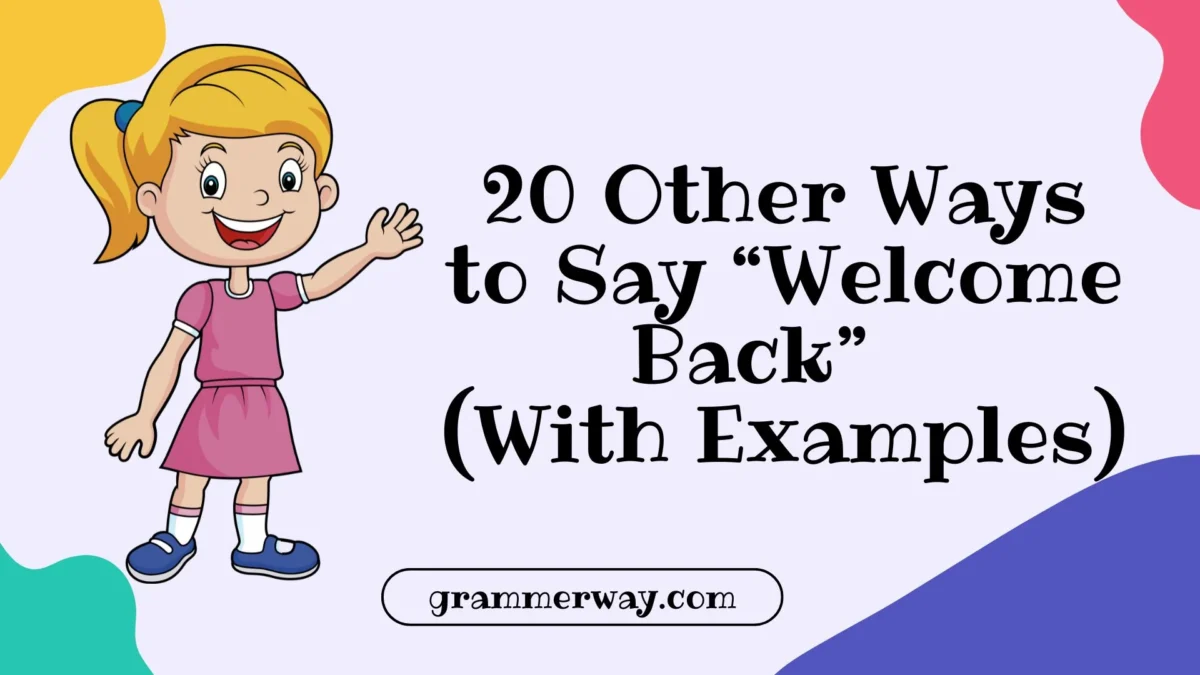
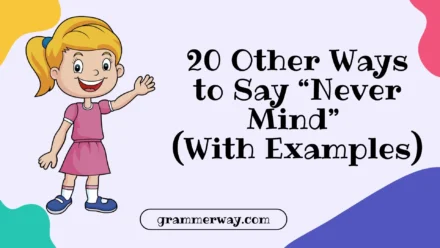
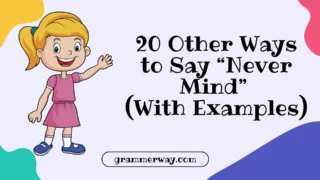
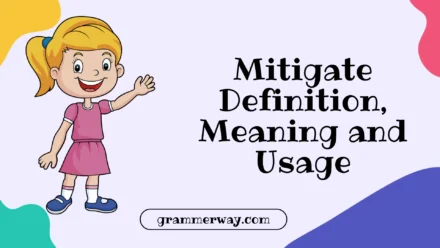
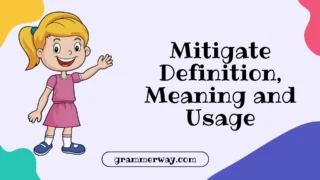
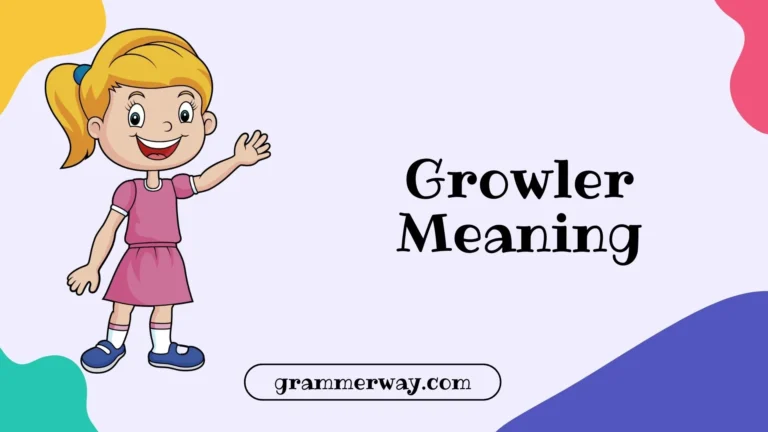
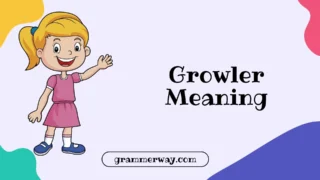
Leave a Comment